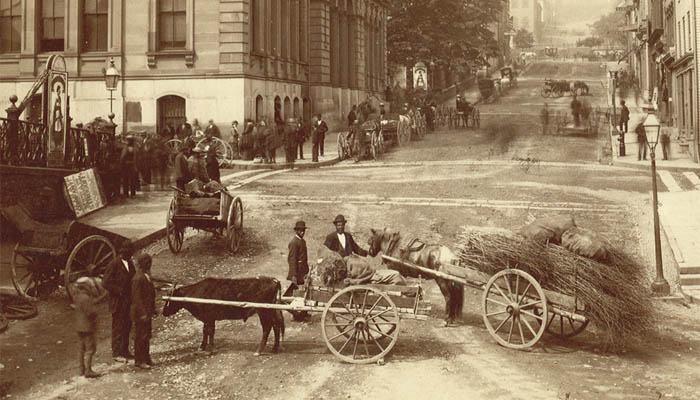African Nova Scotians and the War of 1812
For many African Nova Scotian communities, the War of 1812 marked a beginning. Places like North Preston, Hammonds Plains and Beechville, along with locations in the Windsor area and throughout the Annapolis Valley, became home to nearly 2,000 Black Refugees following the historic conflict.
Promised freedom and land in exchange for service to the British Crown, the Black Refugees were relocated to Nova Scotia where they were met with broken promises, poor land and opposition from nearby white settlers. Despite these obstacles, Black Refugees and their descendants were able to build strong communities that exist to this day.
It is from these origins that some of our most celebrated African Nova Scotians emerged; leaders like Minister Richard Preston (1791-1861), who came to Nova Scotia from Virginia in 1816 to look for his mother, a Refugee who escaped slavery during the War of 1812. He went on to become a key spiritual leader in the province and a founder of the African United Baptist Association in 1854.
William Hall (1827 – 1904), the third Canadian and first Nova Scotian to receive the Victoria Cross, was the son of War of 1812 Refugees. A native of Horton Bluff, his portrait hangs in Province House, and a painting commemorating his actions during the Siege of Lucknow was installed in Government House in 2011.
Award-winning African Nova Scotian writer and Order of Nova Scotia member George Elliott Clarke also counts himself among the descendants of 1812 Refugees.
To learn more about Black Refugees, visit the Nova Scotia Archives’ virtual gallery African Nova Scotian Diaspora: Selected Government Records of Black Settlement, 1791-1839.
To find out about the work that African Nova Scotian Affairs (ANSA) does to assist, support and enhance the provincial government's delivery of services to African Nova Scotians, visit ANSA's website.


